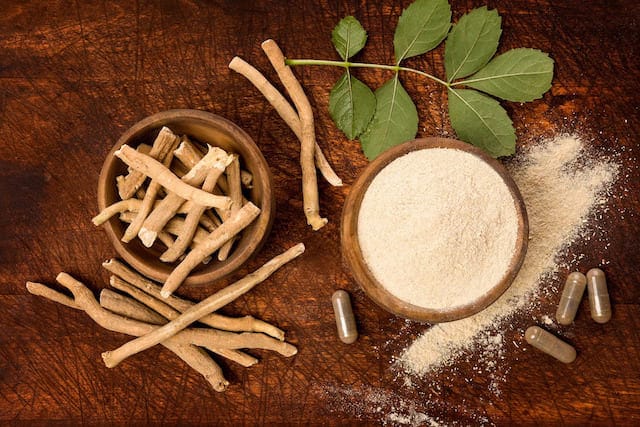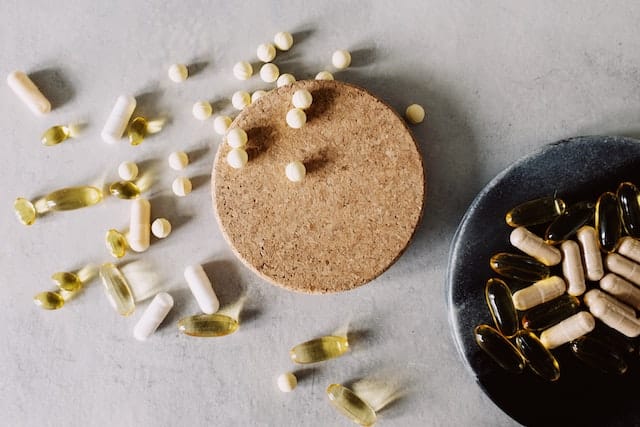The Fibre Factor: How High-Fibre Foods Boost Your Health
In the realm of nutrition, there is an often-underestimated hero that plays a pivotal role in our overall health and well-being: dietary fibre. Fibre is a nutrient that deserves far more recognition for its contributions to our health. It’s not just about preventing constipation; fibre-rich foods provide a myriad of health benefits, from aiding digestion to supporting heart health and even assisting in weight management. In this comprehensive article, we will delve into the fascinating world of dietary fibre. We’ll explore what fibre is, the different types of fibre, its importance in our diet, the numerous health benefits it offers, showcase ten high-fibre foods, and conclude with actionable advice on how to incorporate more fibre into your daily meals.
What is Fibre in Foods?
Fibre, often referred to as dietary fibre or roughage, is a type of carbohydrate that is unique in the sense that it cannot be broken down by human digestive enzymes. Instead, it passes through the digestive system largely intact, providing bulk to stool and performing various vital functions along the way.
Fibre is exclusively found in plant-based foods, such as fruits, vegetables, whole grains, legumes, nuts, and seeds. Unlike other carbohydrates like sugars and starches, fibre molecules are linked together in long chains, and our bodies lack the enzymes necessary to break these chains apart. This inability to digest fibre is precisely what makes it so beneficial for our health.
What Are the Different Types of Fibres in Food?
Not all fibre is created equal. There are two primary categories of dietary fibre: soluble and insoluble fibre.
Soluble Fibre
Soluble fibre dissolves in water to form a gel-like substance. This type of fibre is found in foods like oats, beans, peas, lentils, fruits, and some vegetables. When consumed, soluble fibre acts as a sponge, absorbing water in the digestive tract and forming a viscous gel. This gel can have a remarkable impact on various aspects of our health, from moderating blood sugar levels to reducing cholesterol.
Insoluble Fibre
In contrast, insoluble fibre does not dissolve in water. It adds bulk to stool, which helps keep things moving through the digestive system efficiently. Insoluble fibre is commonly found in whole grains, vegetables, and the skins of fruits. Its primary role is to promote regular bowel movements and prevent constipation.
Why is Fibre Important in Our Diet?
Fibre plays a crucial role in maintaining our overall health and well-being. Here are several reasons why fibre is a dietary essential:
Digestive Health: One of the most well-known benefits of fibre is its ability to promote healthy digestion. Soluble fibre helps soften stool, making it easier to pass, while insoluble fibre adds bulk, preventing constipation and promoting regular bowel movements. This combination keeps the digestive system functioning smoothly.
Weight Management: Fibre-rich foods are often more filling than low-fibre counterparts. They provide a sense of fullness and satisfaction, which can lead to reduced calorie consumption. By curbing appetite and promoting satiety, fibre assists in weight management and can be a valuable ally in weight loss efforts.
Heart Health: Soluble fibre has a notable impact on heart health. It binds to cholesterol particles in the intestines, helping to lower LDL (bad) cholesterol levels. This, in turn, reduces the risk of heart disease and stroke.
Blood Sugar Control: Fibre, particularly soluble fibre, has the remarkable ability to slow the absorption of sugar in the bloodstream. This can help stabilise blood sugar levels, making it an essential component of a balanced diet for individuals with diabetes or those at risk of developing the condition.
Gut Health: A healthy gut microbiome is crucial for overall health. Fibre acts as a prebiotic, providing nourishment to the beneficial bacteria in our gut. These friendly bacteria play a significant role in digestion, immune function, and even mental health.
10 High-Fibre Foods
Now that we understand the importance and benefits of fibre, let’s explore some delicious high-fibre foods that you can easily incorporate into your diet:
1. Beans and Legumes: Beans, lentils, and chickpeas are fibre powerhouses. They are versatile and can be used in soups, stews, salads, and even as a meat substitute in dishes like veggie burgers.
2. Whole Grains: Opt for whole grains like brown rice, quinoa, whole wheat pasta, and oats. These grains provide both soluble and insoluble fibre and are excellent additions to your diet.
3. Fruits: Berries (such as raspberries, blackberries, and strawberries), apples, pears, and oranges are rich in fibre and make for healthy snacks or additions to your breakfast and salads.
4. Vegetables: Broccoli, Brussels sprouts, carrots, and leafy greens like spinach and kale are excellent sources of fibre. You can enjoy them as side dishes, in stir-fries, or as the main course.
5. Nuts and Seeds: Almonds, chia seeds, and flaxseeds are high in fibre and healthy fats. Sprinkle them on yoghourt or oatmeal, or enjoy them as a satisfying snack.
6. Avocado: Avocado is not only a creamy and delicious addition to your meals but also a good source of fibre. Add it to salads, sandwiches, or enjoy it as guacamole.
7. Popcorn: When prepared without excessive butter or oil, popcorn is a whole-grain snack that provides a surprising amount of fibre.
8. Sweet Potatoes: These nutrient-packed root vegetables are rich in both soluble and insoluble fibre. Bake them as fries, mash them, or incorporate them into various dishes.
9. Artichokes: This unique vegetable is a fibre standout. Fresh or canned artichoke hearts can be added to salads, pasta dishes, or enjoyed as a side.
10. Berries: Raspberries, blackberries, and strawberries are not only delicious but also packed with fibre. Enjoy them fresh or add them to yoghourt, oatmeal, or smoothies.
How Much Fibre is Required Per Day?
The recommended daily intake of dietary fibre varies based on factors such as age, sex, and overall calorie consumption. However, as a general guideline, the American Heart Association suggests a daily target of at least 25 grams of fibre for adult women and 38 grams for adult men.
It’s important to note that these recommendations are based on a 2,000-calorie per day diet, which is a standard reference point. If your daily calorie intake is significantly higher or lower, your fibre requirements may also need to be adjusted accordingly. Additionally, children and teenagers have different fibre needs based on their age and calorie intake, typically ranging from 19 grams to 31 grams per day.
Meeting these daily fibre goals can be a valuable step towards improving your overall health. However, it’s equally important to remember that the type of fibre you consume matters as well. A balanced intake of both soluble and insoluble fibre from a variety of food sources is ideal for reaping the full spectrum of health benefits that dietary fibre has to offer.
Conclusion
Incorporating high-fibre foods into your diet is a simple and effective way to enhance your overall health. Whether you’re looking to improve digestion, manage your weight, support heart health, or control blood sugar levels, fibre is a versatile and essential nutrient that can help you achieve your goals. By making conscious choices to include fibre-rich foods in your meals, you’re investing in your long-term well-being and vitality. So, embrace the fibre factor and savour the benefits it brings to your health, one delicious bite at a time. Your body will thank you for it!











 Fruits are an excellent source of vitamins, minerals, and antioxidants, which are essential for maintaining healthy skin. Berries, in particular, are known to be superfoods for skin health. Blueberries are packed with antioxidants that help protect the skin from damage caused by free radicals and environmental factors such as pollution and UV rays. Strawberries are a rich source of vitamin C, which helps boost collagen production, and cherries contain anthocyanins, which have anti-inflammatory properties that help to reduce skin irritation and redness.
Fruits are an excellent source of vitamins, minerals, and antioxidants, which are essential for maintaining healthy skin. Berries, in particular, are known to be superfoods for skin health. Blueberries are packed with antioxidants that help protect the skin from damage caused by free radicals and environmental factors such as pollution and UV rays. Strawberries are a rich source of vitamin C, which helps boost collagen production, and cherries contain anthocyanins, which have anti-inflammatory properties that help to reduce skin irritation and redness. Like fruits, vegetables are a great source of vitamins, minerals, and antioxidants that are essential for maintaining healthy skin. Leafy green vegetables, such as spinach and kale, are rich in vitamin A, which is important for skin health. Vitamin A helps to repair skin tissues, promote cell growth, and reduce the appearance of fine lines and wrinkles.
Like fruits, vegetables are a great source of vitamins, minerals, and antioxidants that are essential for maintaining healthy skin. Leafy green vegetables, such as spinach and kale, are rich in vitamin A, which is important for skin health. Vitamin A helps to repair skin tissues, promote cell growth, and reduce the appearance of fine lines and wrinkles. Nuts and seeds are a great source of healthy fats, vitamins, and minerals, which are important for healthy skin. Walnuts, for example, are rich in omega-3 fatty acids, which help to reduce inflammation in the skin and protect it from damage caused by UV rays. Almonds are an excellent source of vitamin E, which helps to protect the skin from damage caused by free radicals and promote healthy skin growth.
Nuts and seeds are a great source of healthy fats, vitamins, and minerals, which are important for healthy skin. Walnuts, for example, are rich in omega-3 fatty acids, which help to reduce inflammation in the skin and protect it from damage caused by UV rays. Almonds are an excellent source of vitamin E, which helps to protect the skin from damage caused by free radicals and promote healthy skin growth. Fish and seafood are great sources of protein and
Fish and seafood are great sources of protein and  Whole grains are an excellent source of fibre, which is important for healthy digestion and elimination of toxins from the body. They are also rich in vitamins and minerals, which are essential for maintaining healthy skin. Whole wheat, for example, is a good source of selenium, which helps to protect the skin from damage caused by UV rays.
Whole grains are an excellent source of fibre, which is important for healthy digestion and elimination of toxins from the body. They are also rich in vitamins and minerals, which are essential for maintaining healthy skin. Whole wheat, for example, is a good source of selenium, which helps to protect the skin from damage caused by UV rays.




















